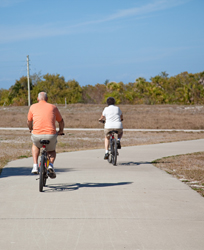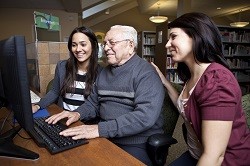Physical activity for improved well-being in the elderly
Physical frailty in the elderly is a major limiting factor for independent living for this age group hence leading to risk of falls and injuries as well as to social exclusion. In order for the elderly to have physical mobility both within and outside the home, it is important to better understand and try to improve this phenomenon. Under these auspices the BETTER-AGEING project undertook a study examining the connection that physical activity, psychological well-being and quality of life has with functionality in people 70 and older. One aspect of the study involved the correlation of daily physical activity and mental health through standardised questionnaires. Overall, both qualitative and quantitative data indicated that taking part in the standardised exercise training programme improved aspects of mental well-being. However further research in necessary to examine if daily physical activity can lead to greater physical independence for this age population. Results have been summarised and disseminated in a document which is available to organisations involved with the health of elderly individuals.







